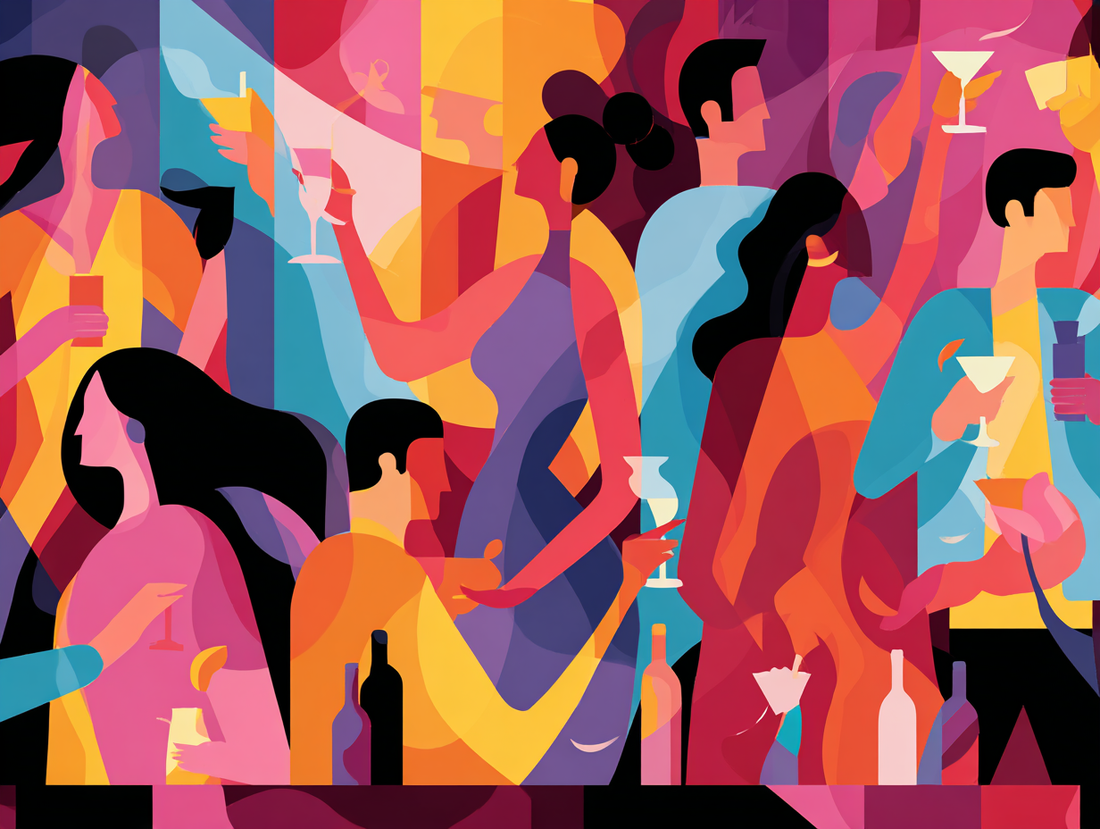
Why Electrolytes Help After a Night Out
Share
Most people know the feeling: you head out for a few drinks, the night is fun, but the morning after is less forgiving. The pounding head, dry mouth, tiredness and foggy focus are all familiar signs of a hangover. What is really happening inside the body, and why can electrolytes make a difference in how you feel the next day?
When you drink alcohol, it works as what’s called a diuretic. A diuretic is something that makes your kidneys release more water than usual. This is why after a few drinks you may notice more frequent trips to the bathroom. With each of those trips, you are not only losing water but also the minerals dissolved in it, such as sodium, potassium, magnesium, and calcium. These minerals are known as electrolytes because they carry an electric charge and help your body’s cells communicate and function properly .
Losing too much water and electrolytes is what leads to the classic hangover symptoms. A headache often comes from the brain temporarily shrinking a little as it loses fluid. Tiredness sets in because your cells can’t make energy as efficiently without the right balance of minerals. Foggy concentration or muscle weakness happens for the same reason: the electrical signals that usually move smoothly between your nerves and muscles can’t fire properly if the electrolyte levels are too low .
This is where replenishing electrolytes helps. When you add them back in, your body can rehydrate more effectively than with plain water alone. Sodium and potassium in particular help pull water into your cells so it stays where it’s needed, not just passing straight through. Magnesium plays a part in converting food into usable energy, so topping it up can help with the drained feeling that comes after a night of drinking. Calcium and magnesium also steady your muscles and nerves, making it less likely that you’ll feel shaky or crampy the next day .
The timing of when you take electrolytes matters too. Mixing up a glass before you go to sleep gives your body a head start on replacing what alcohol has taken away. Taking them in the morning after drinking can ease headaches and revive your energy when you’re feeling the hangover most strongly. Some people even alternate their drinks during the night out, swapping every second glass of alcohol for water with electrolytes, which helps slow the dehydration process in the first place.
Our own Mineral Republic Lemon Electrolyte Powder was designed with this kind of recovery in mind. Each serving provides 1000 milligrams of potassium along with magnesium, calcium and Himalayan salt, in forms that dissolve quickly and are easy for the body to absorb . Customers often mention that they notice less fatigue, fewer headaches and faster recovery when they use it to rehydrate, whether that’s after a workout, a long fast, or a late night out .
The takeaway is simple. Alcohol pulls water and minerals out of your body, leaving you tired, achy and foggy. Replenishing those electrolytes helps your body hold onto water, steady your energy levels and get back to normal more quickly. Whether it’s before bed, first thing in the morning, or even during the night itself, adding electrolytes to your hydration plan is one of the simplest ways to soften the blow of a heavy night.
So while we always advise to stay moderate when it comes to alcohol, it is good to know there are some natural ways to remedy the after effects if needed.
Tips to Reduce the Impact of Alcohol
- Eat before drinking: A meal with protein, healthy fats, and complex carbs slows alcohol absorption.
- Alternate with water: Have a glass of water or electrolyte water for every alcoholic drink to replace fluids as you go.
- Take electrolytes before bed: A scoop in water helps restore balance while you sleep.
- Rehydrate in the morning: Another serving of electrolytes can ease headaches and bring back energy.
- Prioritise rest: Alcohol disrupts sleep cycles, so give yourself extra downtime to recover.
- Know your limits: No supplement can undo excess, but hydration and minerals make the difference between a rough morning and a manageable one.
Further reading:
- Alcohol Hangover: Mechanisms and Mediators (PMC)
- Alcohol hangover versus dehydration revisited (ScienceDirect)
- The Beverage Hydration Index: Influence of Electrolytes (PMC)
- Hangover Symptoms, Remedies & Prevention (Cleveland Clinic)
- Effects of Alcohol Hangover on Cognitive Performance (PMC)
- Does Alcohol Dehydrate You? (Healthline)
- Hangovers – Fact Sheet (NIH / NIAAA)



